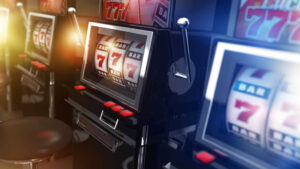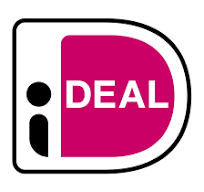With the increasing popularity of online gambling, it’s crucial to choose reputable and trustworthy platforms to ensure a safe and fair gaming experience. This post will guide you through the key indicators of a reliable online casino.
How to Identify Reputable and Trustworthy Online Casinos in the Netherlands Without a Local License
Navigating the online casino landscape in the Netherlands can be challenging, especially when considering platforms that operate without a local license. While the Dutch Remote Gambling Act regulates and licenses operators within the country, many players still encounter international casinos that accept Dutch players despite lacking a Dutch license. To ensure a safe and enjoyable gambling experience, it’s essential to be able to identify reputable and trustworthy online casinos operating outside of local licensing jurisdiction.
Below is a comprehensive guide on how to evaluate and distinguish trustworthy online casinos in the Netherlands, even if they are not locally licensed.
1. Examine the Casino’s Licensing and Regulation
While the absence of a Dutch license might raise questions, reputable international casinos typically hold licenses from well-known regulatory bodies such as:
- Malta Gaming Authority (MGA)
- UK Gambling Commission (UKGC)
- Curacao eGaming
Verify the license details—most licensed casinos display their licensing information prominently on their website, often in the footer or on dedicated pages. A valid license number allows you to confirm the legitimacy by visiting the regulator’s official website.
Tip: Trustworthy casinos operate under strict regulatory standards, ensuring fair play, player protection, and responsible gambling policies.
2. Assess the Casino’s Reputation and Industry Standing
Research the casino’s reputation through independent review platforms, gambling forums, and player feedback. Reliable casinos have positive reviews, transparent terms and conditions, and are often recognized with industry awards.
- Check for any history of disputes or player complaints.
- Look for transparency regarding payout percentages, game fairness, and customer support quality.
Websites like Casino.org, AskGamblers, or Trustpilot provide user reviews that can offer insights into the casino’s reliability.
3. Evaluate Game Selection and Software Providers
Trustworthy casinos partner with reputable software developers such as NetEnt, Microgaming, Evolution Gaming, and Playtech. These providers are known for fair, RNG-certified (Random Number Generator) games that are regularly audited for fairness.
- A diverse game library indicates a serious operator.
- Transparency about game providers and third-party testing is a good sign.
4. Look for Secure and Fair Payment Options
Reliable casinos prioritize security:
- Use encryption protocols (SSL certificates) to protect player data.
- Offer trusted payment methods such as bank transfers, e-wallets (Skrill, Neteller), and reputable credit/debit cards.
Ensure the casino’s withdrawal policies are transparent, reasonable, and consistent with industry standards. Check user feedback regarding payout times.
5. Review Responsible Gambling Features
A trustworthy online casino promotes responsible gambling through:
- Deposit limits
- Self-exclusion options
- Reality checks
- Gamification of responsible gaming
Availability of these features indicates a commitment to player protection.
6. Customer Support and Accessibility
Responsive customer support is a mark of a reputable casino:
- Multiple contact channels (live chat, email, phone)
- Prompt and helpful responses
- Multi-language support, including Dutch, is a plus
Test their customer service before depositing funds to gauge reliability.
7. Read the Terms and Conditions Carefully
Always scrutinize the terms regarding:
- Bonuses and promotions
- Wagering requirements
- Bonus expiration
- Withdrawal restrictions
Clear and fair T&Cs demonstrate transparency and integrity.
8. Confirm Compliance with Dutch Laws and International Standards
While the casino might not hold a Dutch license, check if they:
- Comply with GDPR (General Data Protection Regulation)
- Are compliant with international standards for anti-money laundering (AML)
- Act responsibly towards players in the Netherlands
9. Use Self-Exclusion and Banning Databases
Cross-reference the casino with official or unofficial self-exclusion lists or blacklist databases for the Netherlands to avoid platforms with problematic reputations.
Final Thoughts
While a local license provides the highest assurance, many reputable international online casinos operate without a Dutch license and still uphold strict standards of fairness, security, and responsible gaming. The key lies in diligent research, verifying licensing, industry reputation, safety features, and fair practices.
Remember: Always prioritize your safety and ensure you gamble responsibly. If you’re ever in doubt, opting for licensed operators within the Netherlands or well-regarded international platforms with strong reputations is the safest choice for a secure gaming experience.




